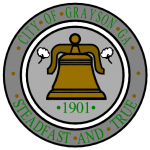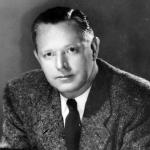Back again, the “Behind the Garden Gate” tour of Lilburn area gardens returns on Saturday, May 9,from 9 a.m. until 3 p.m. Presented by the Lilburn Woman’s Club, the tour offers a chance to visit several unique and inspiring destination spots. They include a Secret Garden, a River House high on a bluff over-looking the Yellow River, a Japanese-style garden featuring over 23 varieties of Japanese maple trees, a cozy Bistro retreat, and the historic Lanford Farmhouse built in the early 1900s. Another destination is Aaron’s Memorial Rock Garden, built by his mother, Marcia, in honor of her son, Aaron Kincaid, who was the first U.S. military casualty in Iraq. Tickets are $20 per person and can be purchased online in advance by Internet at www.lilburnwomansclub.org or the day of the tour at 818 Tom Smith Road, Lilburn.
ISSUE 15.07 | April 24, 2015
IN THIS EDITION
TODAY’S FOCUS: Why Interstate Truckers Don’t Buy Much Gasoline in Georgia
EEB PERSPECTIVE: Here’s a Situation That Really Send Shiver Down My Back
ANOTHER VIEW: Tax Guns and Ammunition to Fund Security Measures
UPCOMING: Grayson Seeks Vintage Photographs; Ballet Offers Summer Program
NOTABLE: Allgood Expands into Knoxville, Tenn.; Sugar Hill Youth Council Is Active
RECOMMENDED READ: Amish Confidential by Levi Stoltzfus and Ellis Henich
GEORGIA TIDBIT: Erskine Caldwell Is Prodigious Author, Writing about the South
TODAY’S QUOTE: Why It’s Better To Know Some of the Questions
MYSTERY PHOTO: Only Two Recognized Casablanca Mosque
TODAY’S FOCUS
Why do most Interstate truckers not buy gasoline when in Georgia?
By Tom Payne
WAYSIDE, Ga., April 24, 2015 — The $300,000,000 question in Georgia is why 85 percent of interstate trucking companies do not buy fuel in Georgia.
On March 15, I attended a meeting with state Representatives Bubber Epps of Dry Branch and Susan Holmes of Monticello, and Senators Burt Jones of Jackson and David Lucas of Macon. I had followed the state meetings of the Transportation Committee, and I had a question.
 My transportation question was about a complicated fuel tax sharing issue with other states. I had been reluctant to write on this due to its complexity.
My transportation question was about a complicated fuel tax sharing issue with other states. I had been reluctant to write on this due to its complexity.
My question, “Did the state fix the problem with the International Fuel Tax Agreement, IFTA, to increase fuel tax revenue being lost, an estimated $300 million?” This is the result of Georgia’s failure to pay other states for the fuel tax collected in Georgia. but where the fuel was used in another state.
If an interstate trucker buys 200 gallons of fuel in our state, and Georgia collects tax, and the driver uses 100 gallons in Georgia and 100 gallons of the fuel in South Carolina, then Georgia is obligated to send the collected fuel taxes to South Carolina for the use of their roads. Part of this problem is that some of the taxes collected are sales tax.
Georgia doesn’t send taxes to the other states. The trucking company does not get credit for the taxes paid in Georgia and used in another state. They have to pay the fuel tax for that state’s road use. They get dinged twice.
As result of this, 85 percent of trucking companies forbid their drivers from buying fuel in Georgia. Mr. Ed Crowell of the Georgia Motor Truckers Association spoke in Savannah to the Transportation Committee, saying that if it could be fixed with legislation, then the fuel tax revenue would increase ‘well north of $250 million.” Representatives were encouraged by this. It would be a good portion of the billion dollars they needed for the new bill.
Rep. Epps, secretary on the Transportation Committee, was unable to answer my question. I asked the question again as the meeting ended, and Mr. Lucas answered it: essentially the answer was no. Asked if it would be fixed next year, he had no idea. After the meeting Senator Jones told me, drivers tell him they would be fired if they bought fuel in Georgia!
- For more information on this, go to http://www.house.ga.gov/Committees/en-US/JointCriticalTransInfraFunding.aspx. For Wednesday, October 1, start at time mark 2:01:30. After Mr. Crowell’s talk, the AAA speaker reveals that the state is also collecting one cent of the fuel tax for the general fund, which amounts to $150 million.
These two items, would have supplied about $400 to 450 million toward the transportation funding.
Instead we got a $5 a room hotel tax, and we will get a six or seven cent increase in the fuel tax. Then next each county will try and add their tax of one cent or one percent (not sure which.) I do not think our representatives did right by their citizens.
EEB PERSPECTIVE
Handcuffing convicted teachers behind their backs was unnecessary
By Elliott Brack, editor and publisher, GwinnettForum.com
APRIL 24, 2015 — What bugged me about the sentencing of the 11 teachers in the Atlanta Public School scandal was relatively minor.
 Lots of people got upset about the severity of the sentencing. We figured the judge was sending an important message about their guilt.
Lots of people got upset about the severity of the sentencing. We figured the judge was sending an important message about their guilt.
Granted, it struck me as odd that those convicted didn’t jump at the opportunity to take a plea bargain and reduced sentence for their admission of guilt. After all, they were convicted by a jury in a somewhat short deliberation. They didn’t seem to want to recognize their guilt, when the jury, the judge and anyone following the case thought what they had done was not only wrong, but illegal.
All that didn’t bother me.
But when the court officers handcuffed the convicted, and not just handcuffed them, but did it with their arms behind their backs, that bothered me.
 First thing, it sends shudders up my back to think of how it must feel to be handcuffed behind your back! It’s bad enough to be handcuffed in front of you. It’s not just the uncomfortableness, but for me the squeamishness of being confined in such a manner, that sends my mind a’reeling. Even thinking about it gives me the Willies.
First thing, it sends shudders up my back to think of how it must feel to be handcuffed behind your back! It’s bad enough to be handcuffed in front of you. It’s not just the uncomfortableness, but for me the squeamishness of being confined in such a manner, that sends my mind a’reeling. Even thinking about it gives me the Willies.
We recognize that policemen hauling in a robber, someone involved in a fight, or tough criminal or even a person involved in a domestic dispute, obviously wants to put these people out of a position to cause even more problems. Handcuffing them in front might allow them to use their two hands to cause trouble. Handcuffing them from behind obviously incapacitates them.
Also granted that once a person is found guilty in a courtroom, this person could snap, become excited, and cause havoc. We see the need to ‘cuff most criminals as they are led away to a lock-up.
Yet it seemed unusual punishment and harassment to handcuff those already-distressed teachers found guilty, especially behind their backs. Some might say that’s the standard process, and think no more about it.
It still sends shivers up my spine.
* * * * *
Criminal activity via the Internet continues strong. Recently I got the following message in an email, and got to think about when I would go to court. Here is the message:
“Dear Elliott,
“You have to appear in the Court on the April 24. Please, prepare all the documents relating to the case and bring them to Court on the specified date. Note: The case will be heard by the judge in your absence if you do not come. You can find the Court Notice is in the attachment.”
It was signed by a name I had never heard of.
What they wanted, of course, may have been to get me to open the attachment, thereby giving them some info about myself, or putting a bug on my computer. Luckily, I didn’t.
Yet at first, I was preparing to appear in court in Lawrenceville. But note: there is no reference to which court to go to, or a court record, or summons, or anything. You wonder how many people who got a similar message opened that attachment, and may have caused harm to their own personal information, or to their computer.
Why can’t these smart people who think up such gimmicks, put their minds toward something more positive, more useful, more helpful to society?
Be careful. Stay on alert all the time. And never open attachments if you don’t know the person sending it.
ANOTHER VIEW
Tax guns and ammunition to fund security measures
By George Wilson
APRIL 24, 2015 — The Second Amendment of the Constitution was written specifically for muzzle-loaded handguns, rifles, and cannons. It was not written to cover cartridge and artillery-shell-type weapons. It simply does not cover cartridge-based and semi-automatic and automatic firing weapons.
The Second Amendment says nothing about taxing owners and manufacturers for the sale and possession of dangerous weaponry when these add enormous security costs to town, city and state budgets. Because of the widespread availability of guns, it is now necessary for governments and businesses to invest in counter-measures to protect against these weapons. The police carry higher powered handguns and rifles and wear body armor. Gas stations and convenience stores open at night have to install bullet-proof glass and enclosures. We harden schools and public places so they are more fortress-like and we spend education dollars for armed school guards at great expense. What happens if the guard is sick or late? Do we close the school?
We simply have to register certain firearms so we can raise tax revenue to pay for this. If you want a certain type of gun, it should cost you.
The NRA started its coercive practices because the firearm industry, based on hunting, was declining. It needed government intervention to protect its move to semi-automatic handguns and rifles used for sport and personal protection. No matter that an increased population of Glocks, SIG Sauers and assault-style rifles has become a self-perpetuating horror story with thousands of deaths.
IN THE SPOTLIGHT
Howard Brothers
 The public spiritedness of our sponsors allows us to bring GwinnettForum.com to you at no cost to readers. Today’s sponsor is Howard Brothers, marking its 60th year in 2015, which has retail stores in Alpharetta, Doraville, Duluth and Oakwood. John and Doug Howard are the ‘brothers’ in Howard Brothers. This family owned business was started by their dad, and continues to specialize in hardware, outdoor power equipment and parts and service. Howard Brothers are authorized dealers of STIHL, Exmark, Honda and Echo outdoor power equipment. They are authorized Big Green Egg and Traeger Grill dealers and have recently become an authorized YETI Cooler dealer.
The public spiritedness of our sponsors allows us to bring GwinnettForum.com to you at no cost to readers. Today’s sponsor is Howard Brothers, marking its 60th year in 2015, which has retail stores in Alpharetta, Doraville, Duluth and Oakwood. John and Doug Howard are the ‘brothers’ in Howard Brothers. This family owned business was started by their dad, and continues to specialize in hardware, outdoor power equipment and parts and service. Howard Brothers are authorized dealers of STIHL, Exmark, Honda and Echo outdoor power equipment. They are authorized Big Green Egg and Traeger Grill dealers and have recently become an authorized YETI Cooler dealer.
- Visit their web site www.howardbrothers.com.
- For a list of other sponsors of this forum, go to: https://www.gwinnettforum.com/about/sponsors.
FEEDBACK
Send us your letters
Rant, rave and send us your opinion. Our policy: We encourage readers to submit feedback (or letters to the editor). Send your thoughts to the editor at elliott@brack.net. We will edit for length and clarity. Make sure to include your name and the city where you live. Submission of a comment grants permission for us to reprint. Please keep your comments to 300 words or less. However, we will consider longer articles (no more than 500 words) for featuring in Today’s Issue as space allows.
UPCOMING
Grayson center seeks photos to save area history digitally
The Grayson Arts and History Center is scheduled to reopen on Grayson Day, April 25, in recognition of the upcoming “National Preservation Month.” A ribbon cutting ceremony officially opening the Center and the Gallery at 2 p.m. on April 25th. For more information on hours, events, classes, and artists, visit www.cityofgrayson.org. The Center is located at 2070 Rosebud Road.
 Throughout the month of May, Main Street Grayson and the Grayson Arts and History Center will be hosting an opportunity to “go digital” with historic photos, clippings, documents, and awards. Gail Lane, Grayson’s community development director and Main Street manager, says: “We want to make sure that these important pieces of Grayson’s history are preserved in such a way as they can be shared beyond the assigned shoe box.”
Throughout the month of May, Main Street Grayson and the Grayson Arts and History Center will be hosting an opportunity to “go digital” with historic photos, clippings, documents, and awards. Gail Lane, Grayson’s community development director and Main Street manager, says: “We want to make sure that these important pieces of Grayson’s history are preserved in such a way as they can be shared beyond the assigned shoe box.”
Residents are invited to bring in their cherished memories to the Arts and History Center throughout the month of May. Volunteers will help catalog, identify, and then scan or photograph the items. Originals will be returned along with a digital copy of each item on a thumb drive. Lane adds: “Our hope is to also create an archive that we can organize for a website and to link in to other ancestry and historical projects nationally. Through this digital archive, we can provide greater access to our local and regional history and participants can share more widely with family members whether close-by or distant.”
Gwinnett Ballet plans camps throughout the summer in Lawrenceville
Young artists from age 3 and up will dance through the summer at Gwinnett Ballet Theatre! Camps, classes and intensives are scheduled from the beginning of June through July in GBT’s 22,000 square foot facility in Lawrenceville at 1800 Macleod Drive.
For the smallest dancers, a special “Fairytale Ballet Camp” will be held June 1-5, June 15-19 and July 13-17. This camp will meet from 10 a.m. until noon and be filled with fun. Imagine exploring a different ballet every day, a famous ballet based on a familiar fairy tale such as Cinderella, Sleeping Beauty, and others! Campers will enjoy dancing, costumes, crafts, and more. Space for this camp is limited, so registering soon is advised. The camp costs $120 per week.
The next level is Beginner Ballet Intensive for ages 7-9. This intensive meets from 10 a.m. until 2 p.m. the weeks of June 8-12, June 15-19 and July 13-17. Emphasis will be placed on ballet basics to ensure a solid technical foundation for future dance development. This intensive is $180 per week.
Advanced and Intermediate Intensives will offer young artists excellent instruction and good preparation for the upcoming season. These intensives meet from 10 a.m. until 4 p.m. on June 1-5 and June 14-18 (Sunday through Thursday.) The week of June 14-18 will feature guest teacher and GBT alumnus Robert Dekkers. Mr. Dekkers is enjoying a very successful dance career as the artistic director of the company “Post:Ballet” in San Francisco. He is also a member of the acclaimed Diablo Ballet. The cost of these intensives is $300 per week. The focus is on classical ballet but instruction will include modern, jazz, hip-hop, improvisation and variations.
Open classes have become a popular part of the GBT summer curriculum. These classes begin the week of June 15th and continue throughout the summer with the exception of the week of July 4th. Classes will be held on Mondays, Wednesdays and Fridays, time to be determined.
- For more information and to register, call 770-237-0046 or visit the web site at www.gwinnettballet.org.
NOTABLE
Allgood Pest Solutions expands into Knoxville, Tenn., area
As the newest in a series of recent additions to the Allgood family, the Allgood Pest Solutions team announces its acquisition of Allied Lawn, Termite and Pest Control in Knoxville, Tenn.
The relationship between Allgood and Allied dates back many years, when Red Tindol, the late Chairman of the Board for Allgood Pest Solutions, worked alongside Claude Walker at Orkin. Both Tindol and Walker left Orkin and founded their own businesses in separate markets.
The acquisition is the most recent one in a series of strategic moves to help strengthen Allgood’s core business. Allgood is presently experiencing a growth phase, with the company recently expanding into new markets and investing in new services. As the business continues to grow, the emphasis remains on providing top tier service and the highest level of customer satisfaction in every market.
Allgood Pest Solutions is based in the greater Atlanta area, with locations throughout Georgia and in Knoxville and Chattanooga, Tennessee.
- For more information, visit www.AllgoodServices.com.
Youth Council at Sugar Hill to hear plans for EpiCenter on April 29
Sugar Hill’s Youth Council will get their chance to be heard on Wednesday, April 29. The council will hear and provide feedback on the plans for Sugar Hill’s EpiCenter, breaking ground later this year. Assistant City Manager Troy Besseche, Economic Development Director Scott Andrews and City Council Member Mike Sullivan will be in attendance as the youth council plays the part of Sugar Hill’s City Council.
The EpiCenter is one of two city projects that will break ground this year. The 30,000 square-foot hub will be home to a state-of-the-art gymnasium, featuring a walking track, volleyball, and basketball courts. It will also feature unique retail space, a tree-top lounge area, and meeting spaces that will be perfect for weddings, receptions, and other gatherings. The center will be built over a parking garage that will have over 100 parking spots.
Sugar Hill’s own 326-seat community theater will also be at the heart of the EpiCenter and will be home to The Players’ Guild community theater group and Broad Street Concert Band. The center will be adorned with water features and landscaping.
RECOMMENDED
Amish Confidential
A television show by Levi Stoltzfus and Ellis Henich
The Discovery Channel is known for its sensationalized series, and its most popular is “Amish Mafia,” which follows a group of enforcers within the Amish community of Lancaster County, Penn. ‘Lebanon Levi’ Stoltzfus controls Amish Aid, a sort of self-financed protection/assistance plan that local Amish residents and businesses fund. Levi’s book is marketed as an insiders’ view to the Amish culture, and an attempt to bring the real day-to-day lives of the Amish to light. The dichotomy of the public image marketed by Chambers of Commerce and outsider businesses portraying the Amish as ‘simple people’ (responsible for millions of tourist dollars), and the truth of who they really are, is an interesting read. In the end, the Amish community is much like the outside, with its scandals, politics, and challenges, only dressed in black suits, blue dresses driving horse-drawn buggies.
— Karen Garner, Dacula
An invitation: What books, restaurants, movies or web sites have you enjoyed recently? Send us your recent selection, along with a short paragraph (100 words) as to why you liked this, plus what you plan to visit or read next. — eeb
GEORGIA ENCYCLOPEDIA TIDBIT
Georgia native Erskine Caldwell prodigious author of the South
Over the course of a long career, Erskine Caldwell wrote 12 books of nonfiction, 25 novels, and nearly 150 short stories. He was intent on depicting life among the lowly in Georgia and the rest of the South, and his concern for the less fortunate—poor whites and blacks—shines in his great novels and short stories of the 1930s. This concern also permeates the strongest writing of his later years, his nonfiction works of the 1960s.
Born December 17, 1903, in Coweta County, Caldwell was the only child of Caroline “Carrie” Bell, a schoolteacher, and Ir
a Sylvester Caldwell, a minister in the Associate Reformed Presbyterian (A.R.P.) Church. Ira’s work led the family to move frequently. By the time Erskine was 15, he and his parents had lived in Georgia, Florida, the Carolinas, Virginia, and Tennessee. In the summer of 1919 they moved back to Georgia and settled in Wrens, in Jefferson County about 30 miles south of Augusta. His parents lived there until Ira’s death in 1944.
Erskine was profoundly influenced by his father, a minister and social reformer in a deeply conservative denomination. As a teenager, Erskine helped Ira provide assistance to desperately poor people in east central Georgia. His experiences with his father shaped much of his writing.
Following high school, Caldwell attended Erskine College, an A.R.P. school in South Carolina, and the University of Virginia, among other institutions. He never received a degree, but at the University of Virginia a professor encouraged him to be a writer. Outside class, he met fellow student Helen Lannigan, whom he married early in 1925. During their 13-year marriage, they had three children: Erskine Jr., Dabney, and Janet.
Caldwell broke into print as a student at the University of Virginia with an essay entitled “The Georgia Cracker” (1926), which contained many of the themes that he later treated in fiction: political demagoguery, racial injustice, orgiastic religion, cultural sterility, and social irresponsibility. Most of his early fiction was published in little magazines. In spite of their shoestring budgets and small circulations, these magazines exerted an important influence on American literature by encouraging experimentation in form and content.
Two of Caldwell’s early stories caught the attention of a major figure in the literary establishment, Maxwell Perkins, senior editor at Charles Scribner’s Sons. Perkins read Caldwell’s work at the suggestion of F. Scott Fitzgerald. In 1931 Scribner’s published American Earth, Caldwell’s first significant book. Among the stories in the collection are “Joe Craddock’s Old Woman,” a poignant vignette of the hardships of farming; “Savannah River Payday,” a telling example of Caldwell’s ability to weave humor and horror; and “Saturday Afternoon,” a gut-wrenching story of a lynching.
Introducing his work to a wider audience, American Earth ushered in an extraordinarily productive decade. By 1940 Caldwell had written, among other works, the novels Tobacco Road, God’s Little Acre, and Trouble in July; the short-story collection Kneel to the Rising Sun; and the documentary You Have Seen Their Faces.
(To be continued)
MYSTERY PHOTO
Great architecture
CLUE: Beautiful stone, great architecture, notable design, but where is it? Tell us where you think this week’s Mystery Photo is located, and give us its name. Send your thoughts to Elliott@brack.net and be sure to tell us where you live.
 Two veterans recognized the Hassan II Mosque in Casablanca, Morocco, sent in by Donnie Loeber of Norcross.
Two veterans recognized the Hassan II Mosque in Casablanca, Morocco, sent in by Donnie Loeber of Norcross.
Ruthy Lachman Paul, Norcross, wrote: “The mosque was started on July 12, 1986 and the grand opening was held on August 30, 1993. The courtyard of the mosque can accommodate up to 80,000 believers and prayer hall up to 25,000 worshipers. It is the largest mosque in the world after the mosque in Mecca, Saudi Arabia. The construction of the mosque was made possible by donations collected from residents of Morocco. Every resident donated, including Jews in Morocco. The mosque is built on the sea, the center spire height of 210 meters – making it the tallest minaret in the world. Artists and artisans from all cities of Morocco were brought to the mosque to carve wood 53,000 square meters and 10,000 square meters tile ceramic. At the request of King Hassan II, the spiritual leader of Muslims in Morocco, adopted a verse from the Koran ‘and His Throne was on the water.’ It also includes a giant mosque roof over all but the opening prayer mat, a museum, a library and a bath house at the bottom.” The other person recognizing the photo was Bob Foreman of Grayson.
CREDITS
GwinnettForum is provided to you at no charge every Tuesday and Friday. If you would like to serve as an underwriter, click here to learn more.
- Send your thoughts, 55-word short stories, pet peeves or comments on any issue to Gwinnett Forum for future publication.
- MORE: Contact Editor and Publisher Elliott Brack at: elliott@gwinnettforum.com














Follow Us